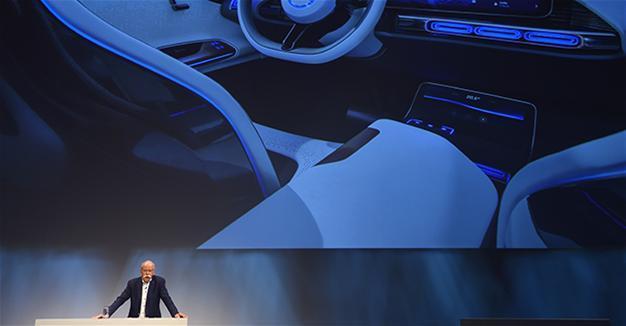Daimler to supply self-driving cars for Uber
FRANKFURT - Agence France-Presse

AFP photo
German auto giant Daimler on Jan. 31 said it had struck a partnership with Uber to supply self-driving cars for the U.S. ride-hailing company.The tie-up comes as both carmakers and ridesharing firms are jockeying to establish themselves as leading players in the burgeoning world of autonomous driving, seen as the future of the auto industry.
“Under the terms of the cooperation, Daimler plans to introduce self-driving vehicles... on Uber’s global ridesharing network in the coming years,” the companies said in a joint statement.
The agreement will see Daimler build and operate self-driving Mercedes-Benz cars for use by Uber, but the statement revealed no financial details.
“As the inventor of the automobile, Daimler aims to be a leader in autonomous driving -- one of the most fascinating aspects of reinventing mobility,” Daimler CEO Dieter Zetsche said in the statement.
San Francisco-based Uber has invested heavily in self-driving car technology in recent years and is currently piloting the use of autonomous vehicles in the U.S. city of Pittsburgh.
But it has no car-building experience, prompting it to seek partnerships.
“Self-driving technology holds the promise of creating cities that are safer, cleaner and more accessible,” Uber CEO and co-founder Travis Kalanick said.
“But we can’t get to that future alone. That’s why we’re opening up the Uber platform to auto manufacturers like Daimler.”
Uber is already working with Sweden-based Volvo Cars to develop self-driving cars for sale by 2021.
And in a world first, a self-driving truck built by Uber’s Otto unit successfully delivered a beer shipment in October. Cars with some autonomous functions, such as the ability to adjust the speed, are already on our roads.
But nearly all the major global automakers, including BMW, Volkswagen and Ford, are racing to get fully self-driving cars on the market in the next few years, often in cooperation with tech firms.
U.S. automaker General Motors last year announced a $500-million (460-million-euro) investment in Uber’s rival Lyft, while Google parent company Alphabet has partnered with Fiat Chrysler to develop self-driving cars.
The BMW group, which has partnered with U.S. computer chip giant Intel, said earlier this month it plans to start testing self-driving vehicles on roads in the U.S. and Europe by the end of the year.
Auto industry expert Ferdinand Dudenhoeffer of Germany’s CAR institute predicted that the tie-up between Uber and Daimler wouldn’t be the last in the sector.
“It’s almost to be expected. And Uber is sure to work with more car manufacturers in the future,” he told AFP.
“It only makes the world of tomorrow even more exciting.”
















